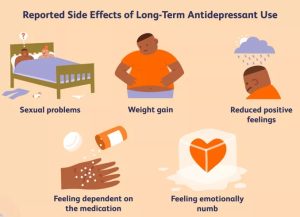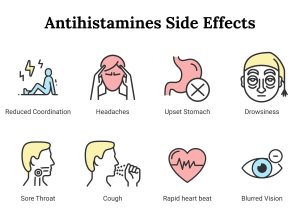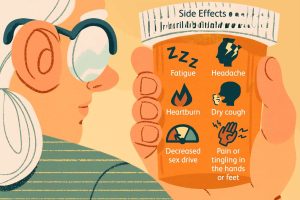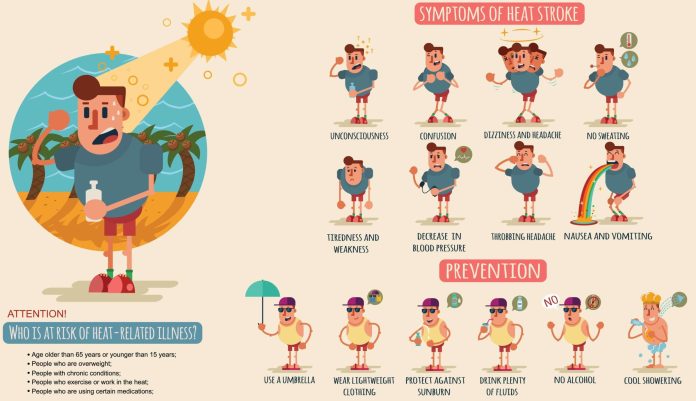Recently, many states in the federation experienced extreme heat, with some states warning residents about what to do in order to avert possible consequences of extreme heat, which could be fatal at some point.
Indeed, in April at the peak of the weather-induced heat, the Nigerian Meteorological Agency (NiMet) in a ‘Weather Warning for Heat Stress’ categorised the 36 states and Abuja into five — Normal, Caution, Extreme Caution, Danger and Extreme Danger — based on the degree of heat waves expected.
Abuja, Kano, Sokoto, and Kogi states were categorised under ‘Extreme Danger,’ and residents were advised to take precautionary steps as they were likely to experience heat or sun stroke.
Some other states in this category are Kebbi, Katsina, Adamawa, Gombe, Bauchi, Taraba, Niger, Zamfara, Nasarawa, Jigawa, Benue, and Kwara.
NiMET also warned Osun, Ekiti, Ondo, Bayelsa, Akwa Ibom, Anambra, Delta, Enugu, Edo, Ogun, Plateau, Borno, Imo, Abia, and Cross River states to be prepared for increased heat waves, although the possibility of heat stroke was less likely, compared to states in the red zone.
However, beyond the weather, experts also warn that there are a lot of different medications that can raise your risk of being susceptible to heat illness, warning that the potential issues they raise can vary.
“One of the biggest issues is medications that block your ability to sweat,” says Lewis Nelson, M.D., chair of emergency medicine at Rutgers New Jersey Medical School.
“If you’re not able to sweat, you lose one of your body’s normal mechanisms to cope with getting hot,” explains Michael Levine, M.D., an emergency medicine physician at UCLA Health.
Some of these medications are more common than others. Doctors say these are the most common drugs that could increase the odds you’ll get sick in high heat.

Antidepressants
Some antidepressants like selective serotonin reuptake inhibitors (SSRIs) and tricyclic antidepressants (TCAs) may impact your body’s ability to regulate your temperature, per the Centers for Disease Control and Prevention (CDC). They may also interfere with fluid balance in your body and increase sweating, raising the risk of dehydration.
 Antihistamines
Antihistamines
Antihistamines are commonly used to treat allergies and allergic reactions. But antihistamines like promethazine, doxylamine, and diphenhydramine can interfere with your body temperature regulation and tamp down on your ability to sweat, according to the CDC.
 Stimulants
Stimulants
Stimulants like amphetamines are often used to treat attention deficit hyperactivity disorder (ADHD). But, research shows that these drugs, which interact with your central nervous system and brain, raise your body temperature, too.

Beta-blockers
Beta-blockers are a class of medications that are mostly used to treat cardiovascular diseases like high blood pressure. But beta blockers can make it harder for people to sweat and appropriately cool themselves in hot weather, according to the CDC. They can also cause low blood pressure, raising the risk of fainting and falls, the CDC says.

Diuretics
These medications help reduce the buildup of fluid in the body, the Cleveland Clinic explains. Also known as water pills, they help your kidneys put extra salt and water into your urine and are often used to treat high blood pressure. But diuretics come with a risk of reduced thirst and excessive urination, which can raise the odds you’ll become dehydrated, the CDC says.

ACE inhibitors
ACE inhibitors are used to treat and manage high blood pressure, which is a big risk factor for heart disease, heart failure, stroke, and more. ACE inhibitors can lower your thirst sensation, making it more likely you won’t take in enough fluids, per the CDC. They also may raise the risk you’ll faint or fall, Dr. Nelson says.

Thyroid hormone replacement medications
Thyroid replacement medications like levothyroxine are designed to raise low levels of natural thyroid hormones in the body, Medline Plus explains. The medication can also raise your temperature and cause excessive sweating, per the CDC. That could increase your risk of dehydration.
 Antipsychotic medications
Antipsychotic medications
These drugs are used to treat psychosis that can happen with schizophrenia, bipolar disorder, depression, and Alzheimer’s disease, according to the Cleveland Clinic. These medications can raise your risk of heat illness by messing with your ability to regulate your body temperature, making it difficult to sweat normally, and reducing your thirst sensation, the CDC says.
Who is most vulnerable to extreme heat?
According to the National Institute of Health and the CDC, the following groups are most at risk in extreme heat:
Children: The way their bodies regulate internal body temperatures can make them overwhelmed more quickly.
Older adults: They’re more likely to have a chronic medical condition or to be taking medications that affects the body’s response to heat.
People with chronic medical conditions: They’re less likely to sense and respond to changes in temperature.
Pregnant people: Their bodies must work harder to cool down not only their body, but the developing baby’s as well.
People experiencing homelessness: Those unsheltered or experiencing housing insecurity are more exposed to extreme heat.
Athletes and outdoor workers: Those who exercise or do strenuous work outside in extreme heat are more likely to become dehydrated and develop a heat-related illness
Pets: They can develop heat-related illnesses too.
With additional resource from CDC


